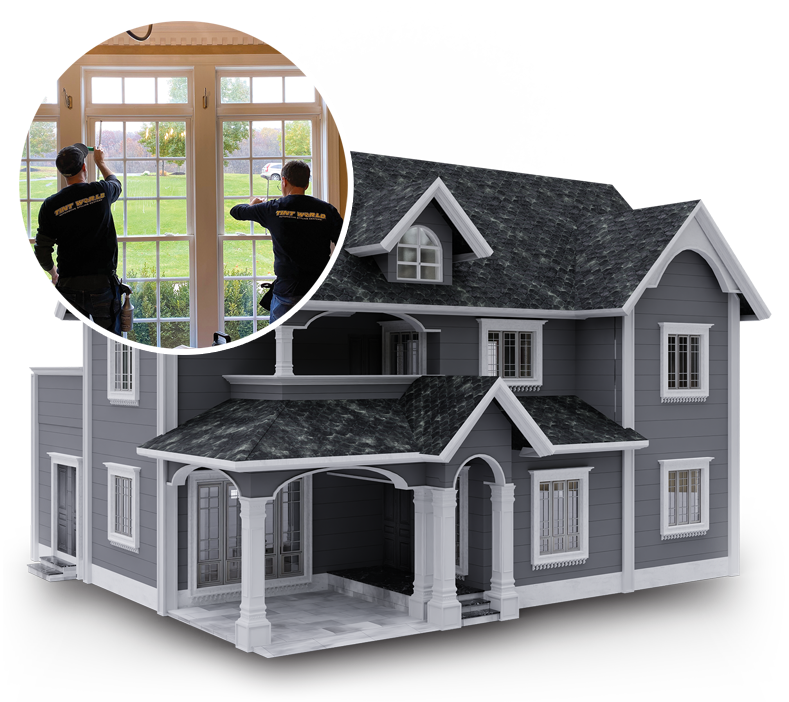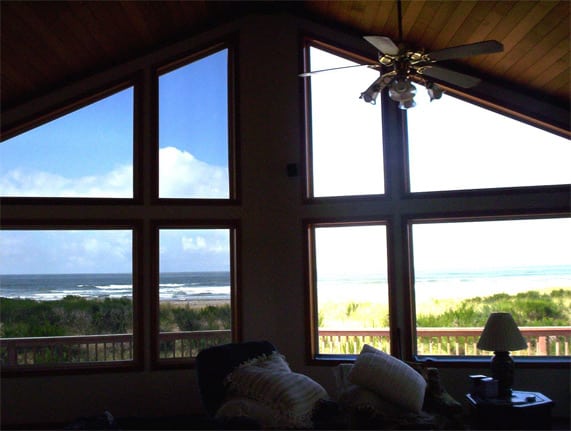Residential Window Tint: Improve Privacy and Design in your house
Residential Window Tint: Improve Privacy and Design in your house
Blog Article
Just How Residential Window Tinting Enhances Your Home's Power Performance
Residential home window tinting offers a compelling solution for home owners seeking to enhance power efficiency within their home. By using specialized films to windows, it efficiently lowers warm transfer, thus stabilizing interior temperatures and lessening the requirement for excessive heating or cooling. This not just cuts power intake but additionally offers an extra comfy environment by alleviating glare. Recognizing the nuances of exactly how tinting works and picking the appropriate type for your home can be critical. Strangely enough, what elements should one think about prior to making this investment?
Understanding Window Tinting
Comprehending home window tinting is necessary for homeowners looking for to enhance both comfort and power performance in their home. Residential Window Tint. Window tinting involves the application of a slim film to the inside or outside surface of glass windows. This film can significantly modulate the amount of sunlight and heat that goes into a home, thus affecting interior climate conditions
There are various types of home window tinting movies readily available, each with unique residential properties. The performance of home window tinting is often measured by its Visible Light Transmission (VLT) portion, which suggests how much light can pass with the movie.
Benefits of Power Efficiency
Window tinting not only boosts visual appeals however additionally plays a significant role in improving energy effectiveness within residential areas. By minimizing heat transfer with home windows, colored movies produce an extra secure interior environment, which can bring about substantial decreases in energy usage for home heating and cooling. This power effectiveness translates right into lower energy costs, giving home owners with significant long-term financial savings.

In addition, window tinting boosts the comfort of living areas. By minimizing glare and blocking hazardous UV rays, tinted home windows create an even more pleasurable setting, which can lead to enhanced well-being for residents. The protection versus UV rays additionally helps protect furnishings and floor covering from fading, contributing to the long life of home items.
Exactly How Tinting Works
Tinting films operate with a mix of advanced products and technologies created to manage the amount of solar power entering a home. Mostly composed of polyester, these movies typically incorporate metallic or ceramic bits that mirror and absorb warmth. This double ability allows them to considerably decrease the infiltration of ultraviolet (UV) rays and infrared radiation while allowing visible light to travel through.
The performance of home window tinting is measured by its solar warmth gain coefficient (SHGC), which indicates how much solar power is sent with the window. Reduced SHGC values are more suitable as they signify better warmth denial. In addition, window tints can feature a variety of shades, permitting homeowners to customize their aesthetic choices while boosting power performance.
In addition, these films serve as an obstacle, protecting against warmth loss throughout colder months by mirroring interior heat back into the space. This thermal insulation effect enhances the cooling benefits obtained throughout warmer months, adding to a well balanced interior environment year-round. By taking care of solar power successfully, household home window tinting not just boosts comfort however why not check here likewise plays a crucial function in minimizing energy usage and decreasing energy bills.
Selecting the Right Tint

There are numerous kinds of home window movies offered, consisting of colored, metalized, and ceramic. Dyed films are cost-efficient however might have limited sturdiness. Metalized movies offer much better warmth rejection however can conflict with digital signals. Ceramic films offer exceptional warmth control without jeopardizing visit this web-site presence and are highly resilient, making them a prominent option.
Noticeable light transmission (VLT) is an additional crucial aspect, as it indicates the amount of natural light that can go through the tinted glass. Property owners must pick a color with a VLT that enhances their lights choices while still giving ample glow reduction.
Additionally, assessing the solar heat gain coefficient (SHGC) can help determine exactly how well a color can block heat from sunlight. A lower SHGC shows far better warmth control, inevitably boosting power effectiveness.
Setup and Maintenance Tips
Correct installation and maintenance are essential components in maximizing the advantages of residential window tinting. Specialists also use specialized techniques and tools, which can boost the longevity and efficiency of the color.
Adhering to installment, upkeep is essential to lengthen the life of the home window movie. It is advised to wait at the very least 30 days before cleansing the tinted home windows to permit the sticky to treat fully.
Addressing these issues promptly can protect against more damages and keep power effectiveness. By adhering to these installation and upkeep ideas, house owners can ensure their window tinting proceeds to supply significant power cost savings and comfort for years to come.
Conclusion
In conclusion, household home window tinting serves as a reliable option for boosting power effectiveness within homes. By reducing warmth transfer and blocking harmful UV rays, home window movies contribute to decrease energy intake and enhanced here are the findings indoor convenience. The selection of suitable tinting products, together with correct setup and upkeep, better optimizes these advantages. Eventually, home window tinting represents a lasting investment that not just lowers energy costs however additionally advertises a comfy living setting throughout the year.
Window tinting includes the application of a slim movie to the interior or exterior surface of glass home windows. By lowering warmth transfer through windows, tinted movies develop an extra stable indoor environment, which can lead to substantial decreases in power consumption for home heating and air conditioning.The effectiveness of window tinting is measured by its solar warm gain coefficient (SHGC), which suggests exactly how much solar power is transmitted through the window. By handling solar energy successfully, household home window tinting not only enhances comfort but also plays an important function in minimizing power intake and decreasing energy costs.
By reducing heat transfer and blocking dangerous UV rays, home window movies contribute to reduce energy consumption and boosted indoor convenience.
Report this page